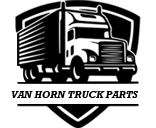
What Is the Function of a Solenoid Valve in Trucks?
When it comes to the complex machinery inside a truck, each component requires careful handling and installation for a steady drive, especially for long distances. The solenoid valve, for instance, manages essential processes for protected travel.
For truck mechanics and semitruck drivers, understanding the importance of this seemingly small component will get you to your next destination efficiently and safely. Discover the function of solenoid valves in trucks to diagnose, maintain, and optimize these systems for a steady drive every time.
The Basics of a Solenoid Valve
A solenoid valve is an electromagnetic device that controls the flow of liquid or gas within a system. It operates using an electric current to generate a magnetic field in the solenoid coil. When powered, the magnetic field activates a plunger or diaphragm to open or close the valve, which allows or restricts the flow of fluids like air or hydraulic liquid.
By converting electrical signals into mechanical action, solenoid valves serve as gatekeepers in a truck’s operation. They allow for precise, automated control over systems that would otherwise require manual intervention.
Application in Heavy-Duty Vehicles
For semitrucks, solenoid valves are integral to air brake systems, emission controls, and fuel injection systems. Because these components operate under all kinds of settings, this makes them an asset to the semitruck’s performance. For a safe drive, invest in high-quality solenoid valves built to last.
Common Types of Solenoid Valves in Trucks
Solenoid valves in trucks vary depending on their specific role in a system. For instance, direct-acting solenoid valves control a small amount of fluid at low pressure, while pilot-operated valves work better for high pressures and large flow volumes. By understanding the types of solenoid valves in your truck, you’ll be able to identify and address system-specific issues effectively.
The Role of Solenoid Valves in the Air Brake System

When a driver presses the brake pedal, compressed air flows through the solenoid valves to activate the brakes. The solenoid valve delivers the air pressure in a controlled, precise manner. This enables the brakes to function effectively.
Additionally, solenoid valves release this pressure when the driver disengages the brakes to reset the system for subsequent use. If these parts undergo wear and tear, they could create complications in your braking system.
Troubleshooting Malfunctions in the Air Brake Solenoid Valve
An issue with the solenoid valve in the air brake system can lead to delayed or uneven braking. Mechanics should look for signs that indicate a damaged system, like sluggish brake response or irregular brake pressure. Cleaning or replacing a faulty valve typically resolves the problem and restores the system’s performance.
Maintenance Tips To Keep the Brake Valve Functioning
Before heading out on a long drive, scheduling regular inspections and timely cleaning of air brake solenoid valves prevents debris buildup or wear and tear. Mechanics should aim to lubricate fittings and determine that the solenoid coil is free from electrical issues like short circuits. Updating and regulating these systems will give drivers a reliable braking system for their deliveries.
Contribution to Fuel Injection Systems
Solenoid valves in fuel injection systems operate by managing the flow of fuel into the combustion chamber. A properly functioning valve optimizes accurate fuel delivery for the combustion process and improves engine performance.
Diagnosing Fuel Valve Performance Issues
Symptoms of a damaged solenoid valve within the fuel injection system can include rough idling, increased fuel consumption, and reduced vehicle power. To determine the severity of these issues, schedule a professional assessment with a specialist. These experts use diagnostic tools to verify the performance of the system.
Prolonging the Life of Fuel Injection Solenoid Valves
Avoiding contaminated fuel and adhering to routine maintenance schedules can extend the functionality of solenoid valves in fuel systems. Without these preventative measures, you could face clogging or potential valve damage.
Integration in Exhaust Aftertreatment Systems
With stringent emission regulations, semitruck manufacturers incorporate solenoid valves into aftertreatment mechanisms such as selective catalytic reduction (SCR) systems. These valves manage the release of diesel exhaust fluid (DEF) to minimize harmful emissions.
Solenoid valves in exhaust systems perform precise dosing of DEF into the exhaust stream to neutralize harmful nitrogen oxides. Their performance directly impacts compliance with emission standards and enables trucks to remain environmentally friendly.
Signs of Aftertreatment Valve Malfunctions
When a solenoid valve loses its aftertreatment functionality in trucks, drivers may notice increased NOx emissions or an illuminated check engine light. If you notice these signs, contact a specialist for immediate repair or replacement of malfunctioning components to reduce the risk of environmental violations.
Keeping Exhaust Valves in Top Condition
Mechanics should monitor the solenoid valves within the aftertreatment system for any clogs, leaks, or electrical failures. Any of these types of damage could lead to further complications in the aftertreatment system that are hazardous and expensive to repair. Scheduling regular inspections and cleaning the valve housing will optimize system performance.
Solenoid Valves in HVAC and Cabin Comfort
Cabin comfort keeps drivers at ease during long hauls. For the driver’s benefit, solenoid valves also boost heating, ventilation, and air conditioning (HVAC) systems by controlling airflow and coolant flow.
These valves regulate refrigerant circulation and distribute heat or cold air evenly throughout the cabin. A functional solenoid valve prevents uneven temperatures and keeps drivers comfortable on the road.
Addressing HVAC Valve Problems
A sign of HVAC solenoid valve issues could include inconsistent airflow or difficulty maintaining cabin temperatures. While you may notice these irregularities during your drive, professional inspections can diagnose the exact problem, whether the system has electrical faults or worn valve components.
Tips for HVAC Valve Care
To maintain solenoid valves in HVAC systems, regularly clean air filters and inspect the system for smooth refrigerant flow. Specialists should also inspect electrical connections and controller signals for inconsistencies.
Hydraulic System Management

Hydraulic systems in trucks rely on solenoid valves for precise pressure control. These valves support lifting gears, steering mechanisms, and other hydraulic-powered components.
Hydraulic solenoid valves provide targeted pressure adjustments to deliver power where it’s necessary. This efficiency prevents system strain and keeps hydraulic operations running seamlessly.
Troubleshooting Hydraulic Valve Failures
Drivers may notice sluggish or unresponsive hydraulic functions if the solenoid valve malfunctions. A specialized diagnostic approach will identify clogs, leaks, or coil failures that could hinder the valve’s performance.
Maintenance for Hydraulic Solenoid Valves
Don’t drive without a functioning HVAC system; take precautionary measures to keep your system updated and safe for extended transit times. Regularly inspecting hydraulic lines for contaminants and determining if solenoid coils have an uninterrupted electrical supply are key practices for maintaining operational efficiency.
Driving a semitruck with a damaged solenoid valve could create hazardous conditions for both the vehicle and the driver. For reliable replacement parts, our team at Van Horn Truck Parts provides air brake valves that will rejuvenate the system for a steady and protected drive. To get the proper parts for your system, get in touch with our team today!

